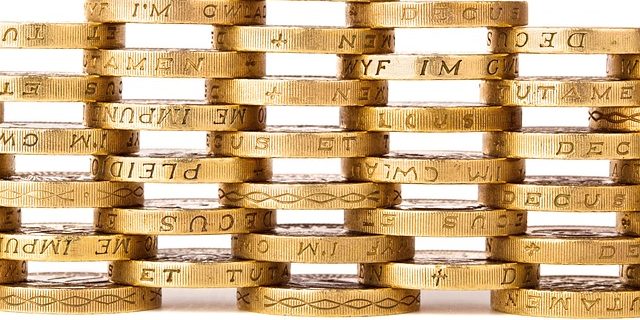A key adage in property is that you shouldn’t buy a property unless it’s showing, or can show relatively quickly, a positive cash flow – unless, of course, you have other reasons for doing so. If you’ve been reading my blog posts for some time now – or if you’ve studied any of my learning resources – then you’ll know that these reasons might include the following:
- That you think you can put the property back into positive cash flow.
- You think you can more than compensate for your losses through capital growth or through being able to trade on at a profit.
- You think that you can increase the rent perhaps by multi-letting a single dwelling. (In other words, converting the property to an HMO).
In most scenarios, most (if not all) investors are intensely interested in cash flow and many will not be satisfied unless they find aproperty which gives a positive cash flow month after month.
But, what does this really mean?
The simplest definition is “what’s left over when outgoings have been deducted from the income”. However, this isn’t always as clear cut as it seems.
You’ll regularly see properties, particularly packaged properties, offered with a stated positive cash flow. For convenience, because rent is paid monthly, market practice is usually to quote positive cash flow figures monthly, although sometimes you may see them quoted on an annual basis.
In theory, the maths for calculating monthly cash flow should be very simple; take the monthly rent and then deduct all the costs.
A problem is that in practice there isn’t a standardised definition of ‘positive cash flow’. So, unless you do a little digging, you won’t necessarily be sure of what someone is talking about when they talk about positive cash flow. Does this matter? Sometimes no, but often very definitely YES! Especially if someone is trying to sell you a property and one of the attractions is the amazing positive cash flow they are quoting to you.
Here’s what I have noticed. When someone selling a property gives a positive cash flow figure, it’s sometimes calculated as being monthly rent less mortgage interest. Sometimes it will include a deduction for management fees – but not always. More often than not, the positive cash flow quoted is usually ONLY rent less mortgage payments. If finance isn’t arranged yet, which is usually the case, then the assumption will be that mortgage payments will be interest only. There will also be assumptions about the interest rate to be charged on any mortgage but often, these won’t be stated.
The reality is though, that if you bought this property you’d soon find that a positive cash flow calculated on this basis doesn’t have any bearing on reality. To know the true likely cash flow for a property, account needs to be taken of other costs and factors. For example, lettings fees, insurance, void periods, management fees, repairs, council tax, licences, mortgage fees… and a number of other incidental sundries from the cost of the annual CP12 to the EPC, and more. Whilst the mortgage payments are usually the single biggest consistent monthly cost, all of the other costs do add up and will have an impact on your cash flow.
As such, when you see a positive cash flow of £200 a month being quoted on a property – and when you start to look at the detail – you’re likely to realise that you aren’t going to be receiving £200 a month positive cash flow in many months.
Unless there is another reason for doing so, you should be buying based on genuine cash flow and not the best possible cash flow if you have no voids, no repairs and manage the property yourself (meaning you don’t have to pay management fees).
This is why doing due diligence is so important. You need to ignore the claims of “positive cash flow” and research for yourself what you are really buying. I’ve seen agents make inflated claims about cash flow but investors who source their own properties also need to be careful too. It’s easy to gloss over or overlook figures, especially when you get emotionally involved with a property.
So, make yourself aware of all the true costs of holding a property so that you can ensure the cash flow is in fact real – because with negative cash flow, you will potentially head to bankruptcy.
Here’s to successful property investing.
Peter Jones
Peter Jones B.Sc FRICS
Chartered Surveyor, author and property investor
thepropertyteacher.co.uk
By the way, I’ve rewritten and updated my best-selling e-book, The Successful Property Investor’s Strategy Workshop, which is an account of how I put together my multi-property portfolio, starting from scratch and with no money of my own, and how you can do the same. For more details please go to: thepropertyteacher.co.uk/the-successful-property-investors-strategy-workshop.







